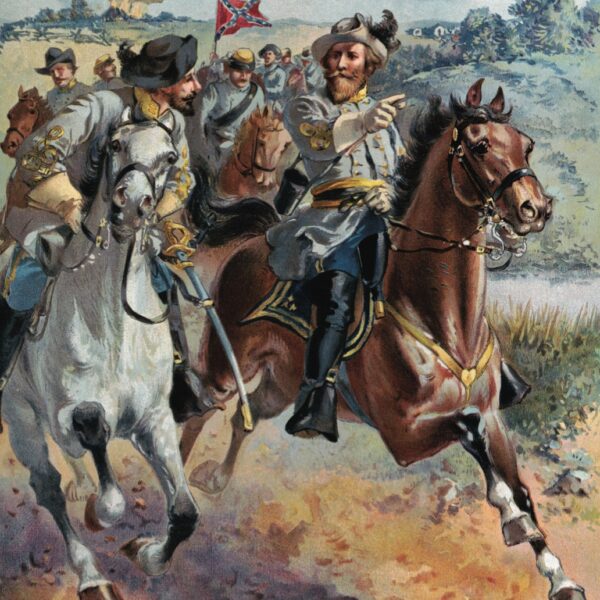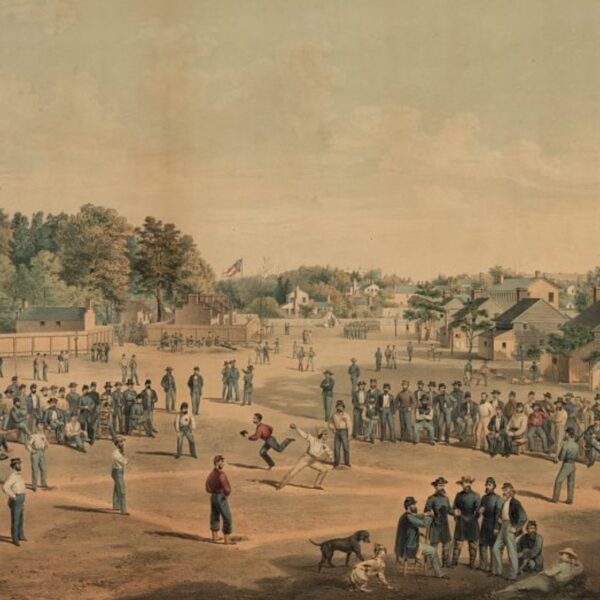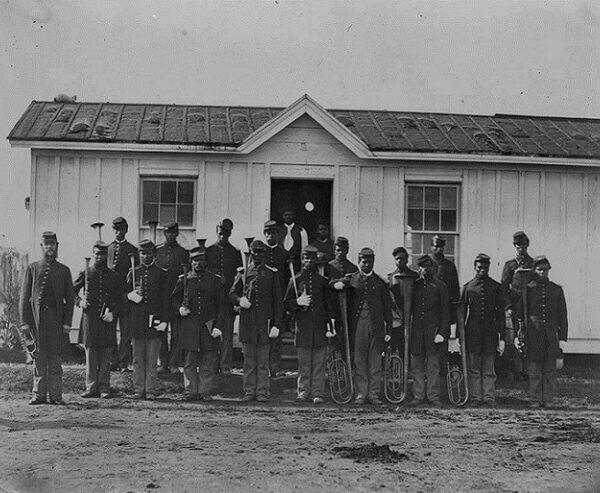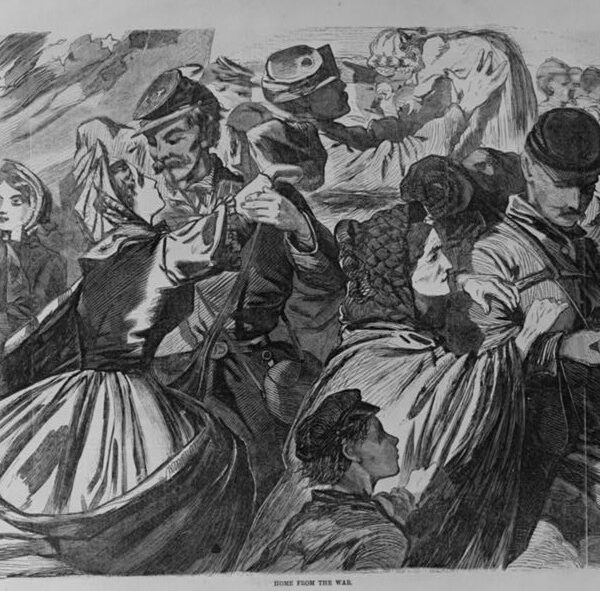
Abraham Lincoln was not a military man, yet in March 1861 he became commander in chief of forces that would soon face the task of suppressing an 11-state rebellion. Other than a few months’ service in the Illinois militia in 1832, he had no experience or training on which to draw. He would need to rely on the professional officers commanding his army and navy, but some of them joined the rebellion and others proved unable to meet the demands of war. Lincoln would have to select, promote, manage, and sometimes discard a series of leaders until he found the men who could guide the country’s armies and fleets to decisive victory over the forces of the Confederacy. The story of how he did this is woven into every Lincoln biography and general history of the Civil War, but some historians have paid particular attention to the evolution of the president’s relationships with his military commanders. To grasp the essentials of this story, start with these five:
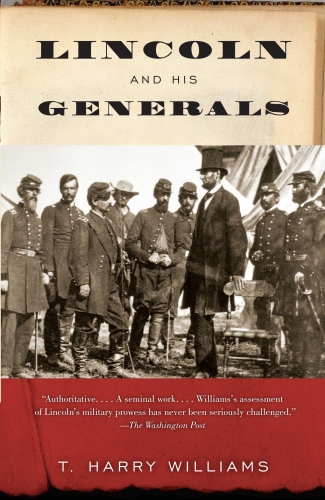
By T. Harry Williams
It’s hard to imagine an exploration of this topic that didn’t start here. Williams’ narrative of Lincoln as the superior strategist searching for someone who could put into action his instinctive understanding of what had to be done, his frustration with George B. McClellan and his successors, and his rapport with Ulysses S. Grant established the paradigm within which subsequent authors have written. The book was a popular and critical success, selected by Book-of-the-Month Club while earning favorable reviews in professional journals, in large part because of Williams’ engaging writing style. He expressed his opinions of Lincoln’s generals freely, often in memorable phrases, for example describing Don Carlos Buell as “McClellan without charm or glamor.” He recognized Grant as the first great modern general, but challenged the portrayal found in Grant’s memoirs of Lincoln as a hands-off leader, arguing instead that Lincoln continued to provide overall strategic guidance even after he had found in Grant a general who shared his vision. Few scholarly analyses of important Civil War topics have held up as well over 75 years as this one.
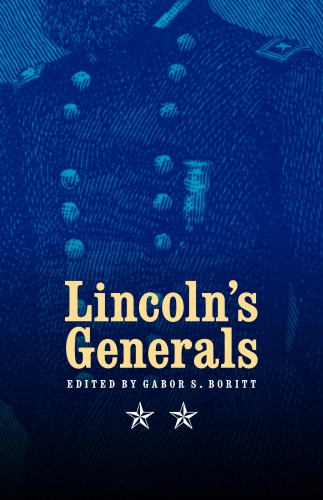 LINCOLN’S GENERALS
LINCOLN’S GENERALS(Oxford University Press, 1994)
Edited by Gabor Boritt
This collection of essays is an economical choice, updating Williams with 40 years of scholarship through the views of five leading experts discussing Lincoln’s relationships with five of his most important generals: Stephen Sears on McClellan, Mark E. Neely Jr. on Joseph Hooker, Gabor Boritt on George G. Meade, Michael Fellman on William T. Sherman, and John Y. Simon on Grant. Sears and Fellman also wrote full-length biographies of their subjects, and editing Grant’s papers was Simon’s life’s work. Sears, not surprisingly, places all the blame on McClellan for his failed partnership with Lincoln. The iconoclastic Neely argues that Lincoln’s personal bravado was in part responsible for Hooker’s defeat in the tangled terrain at Chancellorsville (which he suggests ought to be called “First Wilderness”). Boritt shares Lincoln’s frustration with Meade’s failure to destroy Lee’s army after Gettysburg, a view of the campaign that Kent Masterson Brown would seriously challenge in Meade at Gettysburg: A Study in Command (2021). Where Williams said nothing about Sherman’s policies regarding African-American soldiers or postwar reconciliation, Fellman shows how much distance there was between Lincoln and Sherman on these matters, to the point of insubordination on Sherman’s part. Only the loose structure of the federal war machine, tenuous communications between Washington, D.C., and Sherman in Georgia, and Sherman’s victorious record allowed him to continue to act contrary to the president’s wishes. Simon follows Williams in debunking the myth that Lincoln delegated conduct of the war to Grant by showing how Lincoln refused to allow Grant or any of his subordinates to engage in political as opposed to military negotiations with their Confederate counterparts. All of these thought-provoking essays are supported by thorough research, often as part of larger projects by their authors. The University of Nebraska Press did well to reissue this once hard-to-find volume in paperback in 2010.
LINCOLN AND THE MILITARY(Southern Illinois University Press, 2014)
By John F. Marszalek
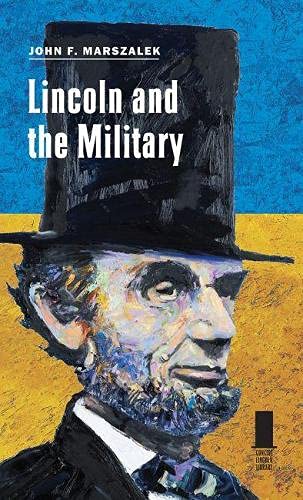
Southern Illinois University Press’ “Concise Lincoln Library” series includes 29 short volumes, all with uniform cover designs but wildly varying approaches to their topics. Marszalek’s entry in the series is a mini-monograph, carefully referenced, that gives an effective overview of how Lincoln ran the war as a military and political leader. In terms of Lincoln and his commanders, this book stresses his relationship with Henry Halleck, who gets short shrift from Williams (whose book does have an index entry for “Halleck, indecision of”) and is not covered at all in Lincoln’s Generals. Because Halleck was so ineffective in his role as Lincoln’s military advisor, it is easy to overlook how often Lincoln turned to him, hoping against experience that he might do better this time. Marszalek, author of a 2004 biography of Halleck, restores him to the position of prominence in Lincoln’s military household that he was never able to fill adequately.
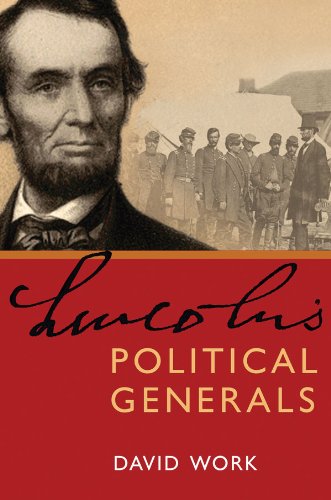 LINCOLN’S POLITICAL GENERALS(University of Illinois Press, 2009)
LINCOLN’S POLITICAL GENERALS(University of Illinois Press, 2009)By David Work
McClellan and Grant (in that order), followed by Sherman, Hooker, Meade, Halleck, Buell, Ambrose Burnside, and others, traditionally dominate historical discussion of Lincoln and his generals. All were West Pointers, but many of the generals Lincoln named to important positions were not. Thomas Goss defended the role played by some of the most famous of these (John C. Fremont, Benjamin Butler, Nathaniel Banks, John Logan, John McClernand, and Franz Sigel) in 2003, but Work’s book draws on a broader sample (of 10 additional generals, including Daniel Sickles, Carl Schurz, James Wadsworth, James Shields, and Thomas Meagher). Where traditional accounts have mocked many of these leaders for their incompetence and criticized Lincoln for appointing them, and where Goss argued controversially that the political benefits they brought to the Union war effort outweighed the costs of their military ineptitude, Work’s evaluations are more nuanced. He shows that Lincoln’s civilian generals repeatedly failed as independent army commanders, but also that Lincoln learned to use them successfully to build political support for the war effort among immigrant groups and Democrats, as well as to administer military departments, shape emancipation policy, and command troops effectively when serving in subordinate roles under competent West Point-trained generals.
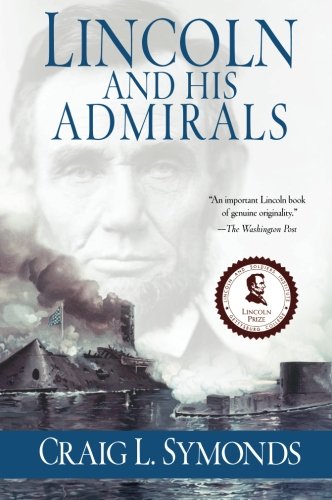 LINCOLN AND HIS ADMIRALS(Oxford University Press, 2008)
LINCOLN AND HIS ADMIRALS(Oxford University Press, 2008)By Craig L. Symonds
In his introduction, Symonds notes that T. Harry Williams omitted an important part of Lincoln’s role as commander in chief by leaving out the U.S. Navy. This book fills that gap by tracing Lincoln’s relationships both with his admirals and with the civilians who directed naval policy, Secretary of the Navy Gideon Welles and Assistant Secretary Gustavus Fox. Symonds doesn’t claim that Lincoln, a son of the heartland, had an instinctive genius for war at sea, as Williams argues he did for military strategy. Instead, he emphasizes Lincoln’s patience, willingness to innovate, and ability to grow over the course of the war. Lincoln had less contact with his admirals (except for John A. Dahlgren at the Washington Navy Yard) than he did with many of his generals, but Symonds compensates for this with more attention to how Lincoln integrated the political aspects of the war, especially emancipation, with naval policy. Choosing a book title that would inevitably invite comparison with a classic work like Lincoln and His Generals could not been done lightly, but Lincoln and His Admirals meets the challenge.
GERALD J. PROKOPOWICZ IS PROFESSOR OF HISTORY AT EAST CAROLINA UNIVERSITY (GREENVILLE, NC) AND HOST OF THE PODCAST CIVIL WAR TALK RADIO.
This article appeared in the Summer 2022 issue of The Civil War Monitor.
Related topics: Abraham Lincoln

